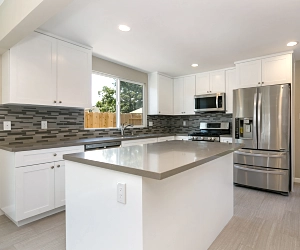
Ending up with a disgruntled tenant is every landlord’s worst nightmare, and for good reason. A problem tenant can quickly cause a significant amount of damage to your property. Not to mention, that unless they’ve already vacated the property, you’ll also be faced with the hassle of trying to evict them, and everything that’s involved with the aftermath of that as well. To help you navigate dealing with the damage to your property in Pacific Beach, CA, caused by the tenant, your trusted property management service professionals will walk you through the procedure. Keep reading!
What can a landlord do when the tenant damages a property?
Damages on a leased property by a tenant often create difficult situations for landlords. The first reaction of the landlord might be to cancel the lease and evict the tenant, but this may not always be the best solution. You can undertake other measures to remedy the situation, eviction being the last resort.
In such situations, the damage must first be duly documented through photos or video footage that clearly demonstrate its extent. This step is necessary both for negotiating the fixing or compensation of the damage and if the landlord decides to take it to court. The tenant should then be contacted and asked to acknowledge the damage and how it occurred and remedy and fix it. If the tenant’s response is negative and refuses to repair or remedy the damage, the landlord can undertake legal action in courts of law. However, as previously stated, this should be the last resort. Landlords should undertake such action when all other possibilities have been exhausted and proven unsuccessful.
The landlords must strictly adhere to the law when trying to recuperate their losses from damaged property, legal action in courts being the last step in that direction. Preference should always be given to negotiations with the tenant. In most cases, these issues are resolved without having to resort to a court of law, with much less trouble than a protracted court case would entail.
What if the damage isn’t the tenant’s fault?
Sometimes, damages that occur on a property are not the tenant’s fault and may be caused by neighbors, repairmen, atmospheric conditions (such as flooding, heavy winds, snowfall). In such cases, the standard is that the landlord should repair the damage and then seek compensation from neighbors, construction companies who have caused the damage, and finally from insurance companies.
Examples of such damages could be the following:
- Leaks from roofs or water or sewage pipes of a neighboring property;
- Damages to the roof, doors, windows, exterior, or even foundations of the building caused by construction work on a neighboring property;
- Accidental damages by repairmen and their tools, such as scratches to the walls, doors, windows, broken tiles and window panes, etc.

Your trusted experts in Pacific Beach, CA for property management



